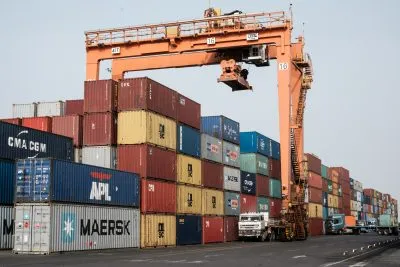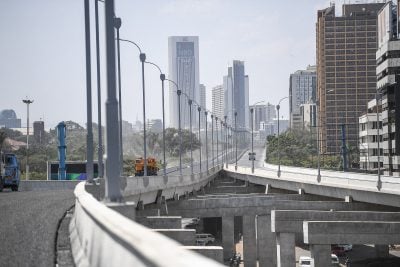There are challenges to overcome, but the tools and markets for African governments to insulate themselves against risks are crucial and available, writes Mansour Sy, Chief Strategy Officer of Taleveras Group.
The management of risks in the public sector has been a well-established practice over the years. For instance, in 1975, the US government implemented a Strategic Petroleum Reserve (SPR) as a response to the 1973 oil embargo; the SPR helps mitigate potential future oil supply disruptions. Similarly, after the 9/11 attacks on the World Trade Center in 2001, the US created the Department of Homeland Security to address issues of terrorism, natural disasters and accidents.
We also have Mexico’s example. Since the early 1990s, the Mexican government has insulated its economy against lower oil prices by entering into financial derivatives contracts with international banks. Most bankers agree that Mexico’s hedging programme is one of the best and most sophisticated programmes in the world today.
These are just some of the examples of pure risk management that should be studied and implemented by African governments. Some have already begun to do so.
Ghana is a prime example of an African country that has understood the need to protect its consumers against higher oil prices. The Ministry of Finance manages an oil hedging programme by purchasing call options from international banks. The Moroccan government recently implemented a similar plan.
In 2011 meanwhile, the government of Senegal put in place a Petroleum Risk Management Committee with the mandate to implement a risk management programme. This committee has done a lot of work, though has yet to put in place a hedging plan. And herein lies the problem. Many African governments are aware of the risks faced by their respective economies − whether they are health risks (such as Ebola) or commodity risks (related to oil, gas, food, etc) − but they unfortunately struggle to put in place the appropriate risk management processes that can help insulate their economies against such exposures.
Four challenges
But if our African governments are so aware of their risk exposures, what is keeping them from taking appropriate measures? When one looks solely at commodity price risks, there are four main reasons.
First, there’s not enough market depth or liquidity in financial derivatives related to some commodities. For example, many countries in sub-Saharan Africa are heavy rice consumers − Senegal and CÔte d’Ivoire combined import more than 2m tons per year for instance. However, as of now, the derivatives market for rice is very thin and therefore makes it prohibitively expensive, if not impossible, for countries with such exposures to hedge adequately.
Second, the cost of hedging is sometimes unbearable. For countries whose government budget is already suffering from commodity price volatility, mainly because of subsidies, it becomes almost impossible to find funds in that same budget in order to cover the cost of hedging.
Third, as aforementioned, African governments are often aware of their risk exposures but struggle with quantifying or providing reasonable estimates of those exposures. Nigeria is a case in point. It is not only highly exposed to lower crude oil prices as a result of producing almost 1.5m barrels per day, but is also exposed to higher oil product prices as a result of being the largest oil products consumer in sub-Saharan Africa. Nigeria’s true exposure to oil prices is not easily quantified, especially when there’s been widespread evidence of fraud on the subsidies side.
Fourth, there is the issue of political risk. No government official wants to bear the responsibility of implementing a hedging programme which fails to protect the budget from commodity price volatility.
Overcoming hurdles
Fortunately, however, there are creative solutions to all these issues. And some of them are already being implemented by proactive African governments. In dealing with higher rice prices for consumers, for example, some governments are working hard to encourage local rice production and consumption − a form of risk management in of itself.
In order to deal with hedging costs, African governments can start by reasonably quantifying them. For example, Senegal imports over 13m barrels of oil per year. But saying that Senegal’s budget is exposed to the full 13m and therefore purchasing protection for this volume would be a mistake. Another way to deal with hedging costs would be to stay as close as possible to hedge providers, try to understand the supply/demand dynamics of hedge instruments, and buy protection when market volatility falls. Indeed, the pricing of these instruments is heavily linked to volatility or expected risk. The lower that expectation is, other things being equal, the lower the cost of protection.
Lastly, in dealing with political risk, African governments could enlist the help of independent and experienced risk advisors or perhaps rely more on the World Bank and IMF. These organisations have not only written extensively on the subject of commodity risk management, but they have also assisted some governments in implementing successful commodity hedging programmes.
Moreover, in managing political risks, African governments should focus on buying insurance-like products (calls, puts, or combinations of either) to insulate their economies. The advantage of buying insurance is that it has a well-defined cost, which can be appropriately budgeted for.
Commodity price volatility is here to stay. The recent 40% or more decline in oil prices has had, and continues to have, a significant impact in the economies of oil-producing countries in Africa. The World Bank tells us that sub-Saharan Africa’s growth will fall below the projected 4.4% annual rate. A similar analysis can be made for oil-consuming economies when oil prices were following an upward trend all the way to $140 per barrel in the recent past.
African governments have therefore seen the damage that volatility can cause. They should not continue to accept the status quo. Nothing new needs to be created in order to insulate their economies. The tools and markets are readily available.
Mansour Sy is the Chief Strategy Officer of Taleveras Group in charge of global strategy and overall business development. He has previously worked in commodities business development, commodities market risk, and hedge funds for Goldman Sachs and Morgan Stanley
Want to continue reading? Subscribe today.
You've read all your free articles for this month! Subscribe now to enjoy full access to our content.
Digital Monthly
£8.00 / month
Receive full unlimited access to our articles, opinions, podcasts and more.
Digital Yearly
£70.00 / year
Our best value offer - save £26 and gain access to all of our digital content for an entire year!
 Sign in with Google
Sign in with Google 



